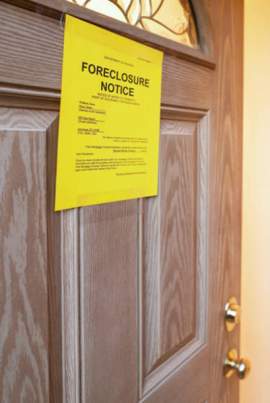
Eviction Process in New Jersey

Popular In Foreclosure
Deed In Lieu Of Foreclosure Stop Foreclosure Pre Foreclosure Protecting Tenants At Foreclosure Act Of 2009 Deed In Lieu Of Foreclosure Maryland Avoid Foreclosure Foreclosure Help Eviction Process In Missouri Eviction Process In Alabama Foreclosure Process Short Sale Deed In Lieu Of Foreclosure Ohio
If you are being evicted in the state of New Jersey, you may not know how to proceed. Learning about the eviction process in New Jersey can help you understand your rights and options under the law. After reading this guide, you will understand the steps involved in the eviction process in New Jersey and how long each step will take.
Getting Notice
Most states require that landlords give you a specified notice period prior to beginning eviction proceedings in court. The eviction process in New Jersey requires notice to be given to many, but not all, tenants facing eviction. For tenants who have failed to pay rent on time, the landlord may begin eviction proceedings in court immediately, without giving any notice to their tenant.
If you violate the provisions of your lease, you must be given a month of notice and given an opportunity during that notice to cure the breach of your lease. For instance, if your landlord wishes to evict you for keeping an unauthorized pet, he or she must allow you a month to re-home the animal prior to continuing the eviction process in New Jersey courts.
If you are being disorderly or have destroyed part of your dwelling, your landlord only needs to give you three days of notice before commencing eviction proceedings in court. Your landlord is not required by the eviction process in New Jersey to give you an opportunity to fix the problem if you have been disorderly or if you are using illegal drugs on the premises.
Court Filings and Hearings
If you fail to leave the premises or otherwise abide by the notice you have been given in the specified time, your landlord may file a complaint with the clerk of the court. You will be served with a copy of the complaint (which specifies why you are being evicted) and the summons (which tells you when and where to come to court for your eviction hearing).
If you are being evicted due to a failure to pay rent, you are allowed to pay back rent plus your landlord's court costs at any day up to and including your court date and avoid eviction. Your landlord is obligated legally to accept the money and reinstate your tenancy.
You are not required to attend the hearing, but if you fail to appear, your landlord will win the case automatically and the eviction process in New Jersey will continue. You may be able to win the eviction case if you can show that your landlord is retaliating or discriminating against you, or that he violated your lease agreement. Talk to a lawyer with experience with the eviction process in New Jersey for more information on your legal rights and options after being given a summons.
Warrant for Possession
If you lose the hearing, the judge will issue a judgment for possession telling you that you must move out within three days. If you fail to vacate within those three days, your landlord can go back to the court and ask for a warrant for possession, which gives the sheriff's department permission to evict you forcibly or lock you out.


















